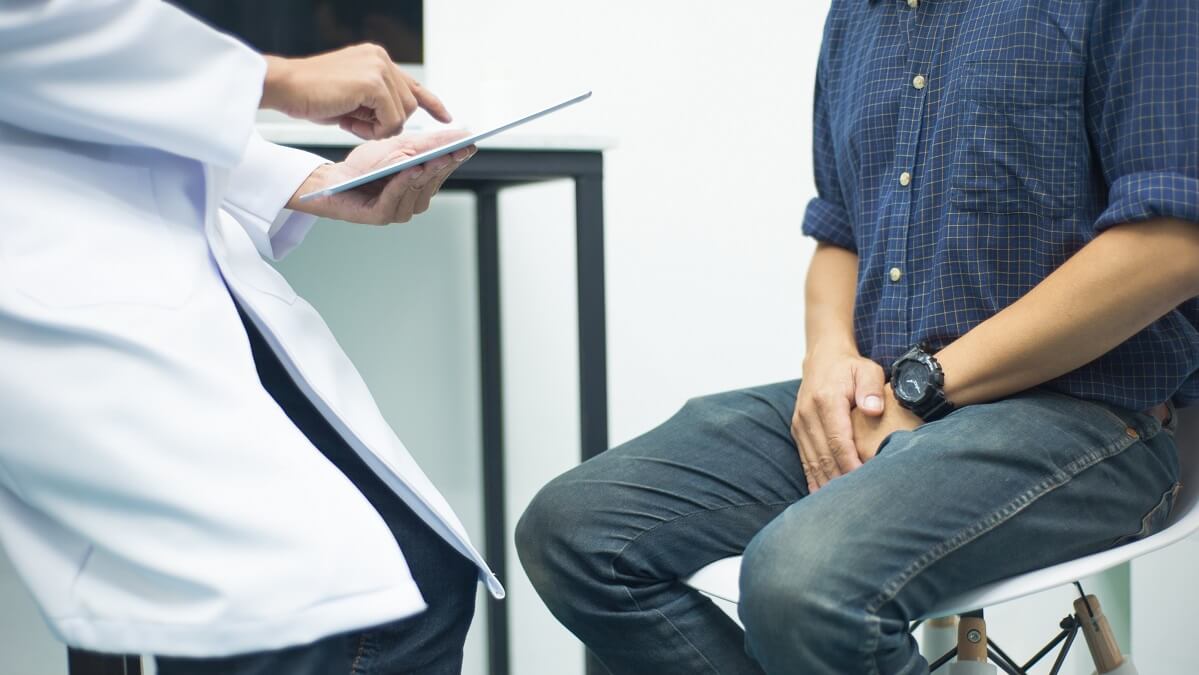Over the past few decades, Australian men have become slightly better at discussing the topic of prostate cancer with their GPs, which has led to greater levels of early diagnosis and prevention. But there is one aspect of the disease that appears to be getting worse – the divide between the rich and poor for those who require treatment.
According to the Prostate Cancer Foundation of Australia (PCFA), there is a widening gap in the level of care afforded to public and private patients diagnosed with the disease. The chief executive of the foundation, Anne Savage, says the cost-of-living squeeze is serving to magnify the issue.
“There are major differences in men’s prostate cancer treatment choices between the public and private sectors, with many public patients unable to access their preferred treatments because of the high costs,” Ms Savage says.
Adding to this burden is the jump in the number of public patients as Australians seek to cope with price increases and interest rate rises by pulling the pin on private health insurance.
Ms Savage says: “That’s a particular concern right now given the increasing costs of living and higher rates of dropout from private health insurance, which could leave many men stranded as they age and need to access lifesaving care.”
One major difference between public and private treatment of prostate cancer is the availability of the robotic prostatectomy. This relatively new method of removing the prostate may provide better outcomes than the traditional ‘open’ prostatectomy but, while available to most private patients at a cost of $12,000 to $30,000, it’s not typically offered in the public system.
The removal of the cancer itself is only part of the equation. For most men, the consequences of a prostatectomy are significant.
A loss of bladder control and sexual function has far-reaching psychological consequences for men, as well as the various physical challenges, but the post-surgery options for those without private health are drastically reduced.
Urological surgeon Daniel Moon, associate professor and director of robotic surgery at Epworth Healthcare, says procedures for impotence, such as penile implants, are generally not offered through the public system.
The reticence of Australians in general to confront the scourge of prostate cancer may well be reflected in a lack of public funding for the awareness and treatment of the disease.
Ms Savage has on several occasions noted the lack of government funding prostate cancer receives relative to other cancers.
In September, she highlighted the fact that there is no publicly funded campaign to promote earlier detection of the disease or awareness of its risk factors. In January, she pointed out that prostate cancer received about half the funding of other leading cancers.
While there would appear to be a strong case for redress for these apparent inequalities, the issue is unlikely to be a priority for a federal government battling budget pressures and whose current focus is very much on superannuation.
Such circumstances make the need for a preventative approach all the more vital. The fact that many men diagnosed with prostate cancer have had no symptoms makes this no easy task.
Whether you have private health insurance or rely on the public system, proactive risk assessment, starting with a PSA blood test, is recommended by the medical profession as the key to early detection and survival.
Have you been diagnosed and/or treated for prostate cancer? Did your journey take you through the public or private healthcare systems? How was your experience? Why not share your thoughts in the comments section below?
Also read: Men warned of a ‘tidal wave of risk’ from prostate cancer


The Cancer council do not recommend routine testing! After having my bladder and prostrate removed and post op tests carried out, I was told I had a very aggressive form of Prostrate cancer that hadn’t been picked up and unlikely to have been. So my Bladder Cancer with classic symptoms of blood in my urine was a life saver for me.
I was found to have prostate cancer after a blood test my doctor sent for a PSA test. I did not know she was doing a PSA test however after receiving the results she contacted me on a Saturday morning saying I should go for further tests ASAP. This I did which confirmed I had prostate cancer. I am always thankful to her for doing the PSA Test when she did as I am free of prostate cancer now.
I went through the public system in Cairns about six years ago after my GP urged me too after my PSA became slightly elevated, about 4. She had run the test as part of a general checkup. It took about six months to get a Urology appointment and my PSA was about 8 by then. I had no symptoms but was sent for a biopsy which was clear.
So my PSA was monitored for another year and rose to 14. Urology then sent me for a mass biopsy and that indicated three tumours. I then had both prostate scans and bone scans. The bone scan was clear and the prostate scan indicated the tumours were still just contained inside my prostate.
I was told either surgery or radiation therapy was available and both had an equal chance of success. I chose radiation as Cairns Base Hospital had a new state of the art radiation bunker. I had about six months of hormone treatment to shrink the tumours and a gold speck inserted into my prostate, after which followed two months of almost daily radiation.
I handled it all fairly well, and now five years later have been declared cancer free with a recent PSA being less than one.
I retained most of my bladder control and being now 73 can still engage in sexual activity although it’s not as easy as it used to be.
Hope this helps any men out there trying to decide what to do.